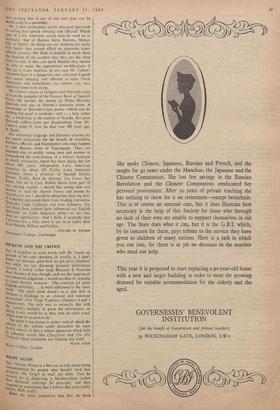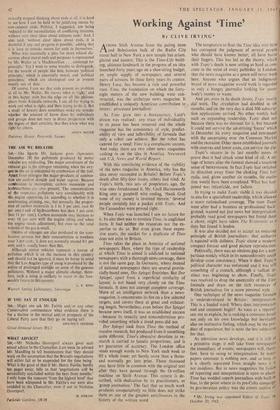R ICHT AGAIN SIR,— Nicolas Walter is a fine one to talk
about being misrepresented by people who haven't read him
properly. He accus, 'forgot to read' my letter. First he
Ls me of displaying 'a Machiavellian (rather t_han Burkean) contempt for principle,' and then 4tiggests by association that I believe that ends justify means. Well, really! Since
my main contention. was that we have virtually stopped thinking about ends at all, it is hard to see how I can be held to be justifying means by non-existent ends. Polities, I suggested, are being 'reduced to the reconciliation of conffieting interests, without very clear ideas about ultimate ends.' And, I also said, 'without clear ideas about ends, it is doubtful if any real progress is possible,' adding that it is 'easy to mistake means for ends in themselves.' What was essentially a plea for more ethical dis- cussion about moral ends and purposes is represented by Mr. Walter as 'a Machiavellian . contempt for principle.' Yet I went to some trouble to distinguish, for the benefit of people like him, between 'political principle,' which is essentially moral, and 'political principles,' which are ideological and at present mostly out of date.
Of course, I can see that ends present no problem at all to Mr. Walter. He knows what is 'right,' and in this happy state has the edge on all the philoso- phers from Aristotle onwards. I am all for trying to work out what is right, and Then trying to itio it But a study of history does sometimes make me wonder whether the amount of harm done by individuals and groups does not vary in direct proportion with the degree of their certainty that they knew what was right for others.































 Previous page
Previous page